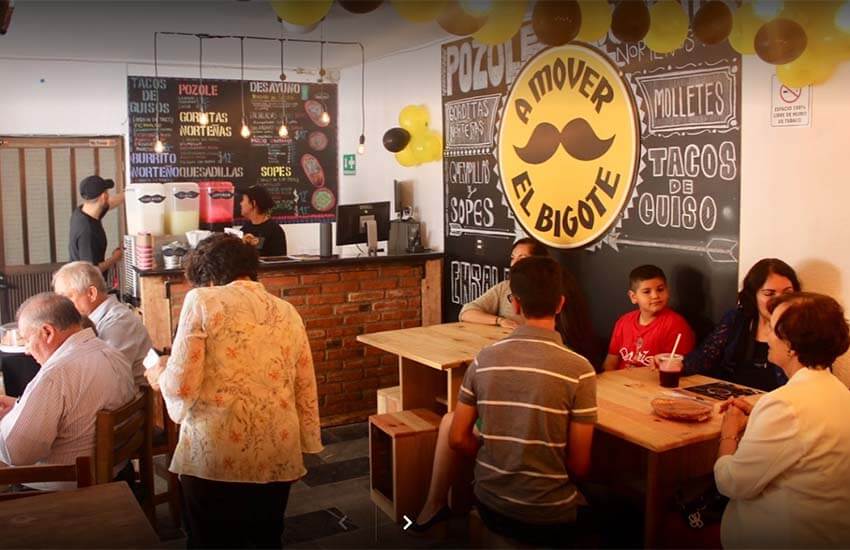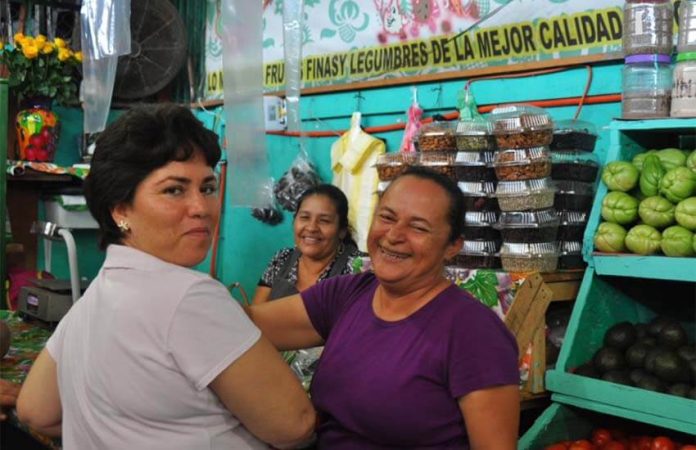Imagine what it is like for a foreigner to learn English. He starts with basic vocabulary, learns how to string together words in a sentence in the right order, practices verb conjugations and might even venture into sayings and figures of speech.
But he needs to do something else. To polish his English, he has to adapt it to the country he is living in. In the United States, he might live in an apartment, but in England, it’s called a flat. If he drinks too much in Great Britain, his friends will say he is “pissed.” In the U.S., he’s merely drunk, not angry.
Clearly, then, a key step — often overlooked — in mastering spoken Spanish is country-level adaptation. Consider that Spanish is spoken as a first language in some 21 nations and territories. But each country has words, expressions and sayings that only locals understand. And Mexican Spanish is no exception.
My wife and I lived for 17 years in Nicaragua and learned the local Spanish well. When our volunteer organization suddenly merged, we were invited to move to Mexico in 2012. Just as we had to change the chip in our cell phone — “mobile” for you British readers — we had to change the linguistic chip in our brain.
New words and phrases were jumping out at us like thieves in a dark alley. Undeterred, we stopped locals in their tracks whenever an unknown word or phrase popped out of their mouths. “What does that mean? In what context do you use it?” We began writing down the answers in a little notebook for future reference.

This was how we lassoed those new words and phrases and brought them to their knees. Now they were ours. And they can be yours too. To get you started, here’s a sample of 10 words and phrases popular in Mexico:
1. ahorita
Literal meaning: the little now
Caribbean Spanish speakers have a beef with this term. For them, it means right now. On the other hand, the Mexican ahorita defies the stopwatch. It runs the gamut from just a few minutes to hours, days or even eternity, depending on the context.
Le atendemos ahorita.
We will be with you shortly.
Ahorita saco la basura.
I’ll take out the trash later on.

2. ¡Aguas!
Literal meaning: “Waters!”
Never take the humble toilet for granted. Back in the old days, you would have to do your business in a primitive container and then dump the unsavory contents out the window. As a courtesy, just before dropping the bomb, a Spanish speaker would yell out: ¡Aguas! The feared waters were coming!
Today it just means: “Watch out!” When driving a vehicle, you might exhort your copilot:
Échame aguas.
Tell me if anything’s coming.
3. color de hormiga
Literal meaning: ant color
Ever been to a red zone? In Spanish a zona roja refers to a dangerous area of town. In the NFL, when a team advances to the red zone, within the opponent’s 20-yard line, it means they are in danger of scoring.
Since some ants are a reddish color, when a situation becomes ant-colored, watch out!
Notice this headline from the newspaper El Diario de Coahuila:
Podría ponerse color de hormiga la economía.
The economy could be in jeopardy.

4. chivearse
Literal meaning: to make like a goat
Goats are happiest aloof, left to themselves. When we are ashamed, we feel the same way. Choose this verb when embarrassment overtakes someone.
Cuando me di cuenta que había dado todo el discurso con un frijolazo en los dientes, me chiveé.
When I realized that I had given the entire speech with a piece of bean stuck between my teeth, I was so embarrassed.
5. el mal de puerco
Literal meaning: the badness of pig
It’s two o’clock in the afternoon and you’ve just feasted on tacos al pastor. How alert and energetic will you be? It’s more likely that you’ll feel like taking a snooze. That’s the sense of mal de puerco.
Después de esa comida pesada, ya me está dando el mal de puerco.
After that heavy lunch, I am feeling super sleepy.
6. de hueso colorado
Literal meaning: red-boned
Are you a die-hard? If so, this phrase may apply to you. Your fervor is so great, it is as if your bones are burning red-hot.
Mi tía es católica de hueso colorado.
My aunt is a staunch Catholic.

7. quedarse con el ojo cuadrado
Literal meaning: to end up with a square eye.
What effect do surprises have on you? Do you blush, cry or faint? In this geometric hyperbole, one’s eyes become square.
Cuando me duplicaron el sueldo, me quedé con el ojo cuadrado.
When they doubled my salary, I was beside myself.
8. Hay que ponerse el huarache antes de espinarse
Literal meaning: You have to put on your sandals before you get pricked.
In a country filled with cactuses, the last thing you want is to puncture your foot with a fallen needle. Solution? Just make sure you are wearing your huaraches, typical leather sandals.
Need to offer a word of caution? Try this saying, which is a worthy equivalent to “better safe than sorry.”
9. mover el bigote
Literal meaning: to move the mustache
The bold macho mustache is not as common as it used to be. Nevertheless, that standard of male grooming persists in this hairy phrase, which is a colloquial way of saying “to eat.”
Vamos, muchachos. Es hora de mover el bigote.
Let’s go, guys. It’s time to eat.

10. apapachar
Literal meaning: to squeeze
Need a hug? Who doesn’t? The Aztecs embraced the idea in Náhuatl with the verb patzoa, to squeeze. Today apapachar is not limited to hugging; rather, it encompasses showing affection in any number of ways.
Voy comprarle a mi mamá su comida favorita para apapacharla.
I am going to buy Mom her favorite food to treat her.
Esposa a esposo: hoy necesito que me apapaches.
Wife to husband: today I need some TLC.
Learning and using Mexican Spanish in everyday conversation will bring you countless benefits: it will endear you to the locals, who will be visibly shocked when they hear you speaking their lingo. So be bold! Go beyond the stale phrasebooks and start speaking like the natives.
Lee Jamison has lived and worked in Latin America for more than 25 years and is a resident of Mexico. He operates the site insiderspanish.com and is the author of the book My Burning Tongue: Mexican Spanish available in paperback and Kindle formats at amazon.com. He has also written guides on the Spanish spoken in Costa Rica, Guatemala, Nicaragua, and Panama.
